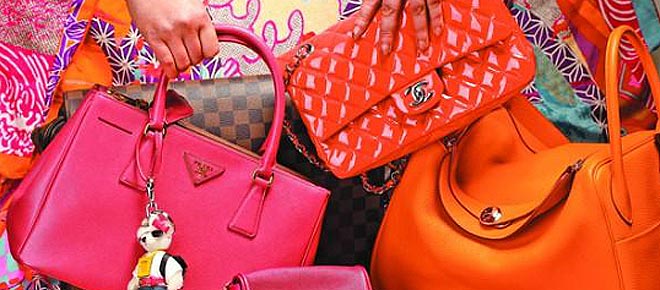Wealthy Chinese cut back on luxury goods
Shanghai Daily, February 28, 2014 Adjust font size:
Wealthy Chinese are likely to buy fewer luxury goods again this year after the steepest cut-back on spending in at least five years, changing the game for high-end retailers who have staked their growth on China.
Overall spending by wealthy Chinese fell by 15 percent in 2013, the third consecutive year of decline, according to a Hurun Report survey. Spending on gifts in particular declined by a quarter.
The drop coincides with a government crackdown on corruption and giving gifts, as well as a growing penchant for travelling and shopping overseas to circumvent Chinese taxes on luxury goods as high as 40 percent.
The shrinking ranks of wealthy residents in China has also reduced luxury spending. One in three so-called high net worth individuals have already left, or are planning to leave, the country, according to the report, mostly to seek better opportunities for their children's education.
Chinese are the top consumers of luxury goods globally. A slowdown in their spending, or a change in shopping habits, would hurt high-end retailers already struggling with a weaker Chinese economy and a more sophisticated clientele that has moved away from logo-branded goods.
Luxury group Richemont, the maker of high-end IWC watches and Cartier jewelry, reported this week slower-than-expected sales growth in the third quarter, largely due to weaker Asian demand.
LVMH, the world's biggest luxury goods group, saw sales growth slow last year as Chinese demand cooled.
"In terms of traditional luxury -- leathers, accessories, watches -- this year is going to be flat if not a little bit down," said Hurun Report founder and chief researcher Rupert Hoogewerf.
"For luxuries like tea, health care, even education, we are still looking at a booming market."
The crackdown on conspicuous spending, which began in 2012, is part of a vow made by President Xi Jinping to be tougher on graft. He has focused in particular on gifts made to government officials, often in exchange for preferential treatment or contracts.
As a result, many wealthy Chinese now buy luxury goods for themselves, rather than as gifts, Hoogewerf said.
Products by Hermes, Chanel, LVMH's Louis Vuitton brand, Apple and Gucci remained among the most sought-after brands for gifting, the survey showed.
Less popular were Bulgari -- another LVMH brand -- Salvatore Ferragamo, Tiffany & Co and Moutai, the fiery liquor once the top tipple of officials.
Affluent Chinese often shop online for the best prices. They have also become more confident about their fashion choices, mixing high-street clothing and accessories with branded goods.
Hoogewerf said: "There will be more purchasing done overseas than in China. For a brand that's global it's fine."
Over two-thirds of luxury spending by Chinese mainland residents was overseas in 2013, a factor that contributed to the United States overtaking China as the world's fastest growing luxury market, according to a study by consultancy firm Bain & Company in December.
China's super-rich are also avid collectors -- 70 percent of wealthy Chinese rank collecting as a hobby -- but what they are coveting is changing.
Ancient calligraphy last year surpassed luxury watches as the most-collected, knocking watches out of the No. 1 spot for the first time in five years, the Hurun report showed, which could mean losses for top watchmakers but a boon for auctioneers.
Patek Philippe remained the most popular watch brand for the seventh year running while Christie's was the top ranked foreign auction house.
The survey results were based on responses from 393 Chinese millionaires, or those with personal wealth of at least 10 million yuan (US$1.65 million). It has been conducted for the past 10 years.


